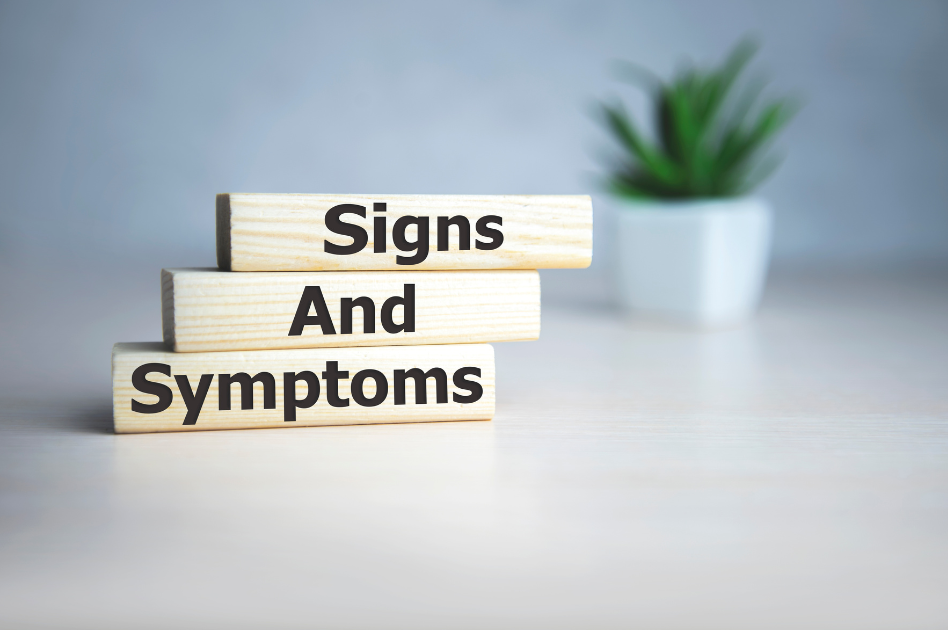There are moments in life when our doubts cast shadows on our self-worth. These feelings of unworthiness can creep into our minds, whispering lies that we’re not good enough, deserving, or worthy of love, success, or happiness.
If you’ve ever questioned your worth, know you’re not alone. Though these feelings can be overwhelming, even paralyzing at times, there is a path to healing, self-acceptance, and personal growth.
In this blog article, we’ll explore what it means to struggle with feelings of unworthiness, its impact on your life, and, more importantly, how to overcome self-doubt and cultivate self-love and acceptance.
Let’s dive in.
Feelings of Unworthiness Defined

Feeling unworthy is like a heavy cloak of self-doubt you wear, often without even realizing it. These feelings stem from a deep-seated belief that you are inherently flawed, inadequate, or not deserving of life’s good things.
This emotional state can present itself in various ways, resulting in suppression of your true self, low self-esteem, strained relationships, and a decline in overall well-being.
Feelings of unworthiness can act as a pervasive emotional filter, distorting your perception of yourself and the world around you.
Understanding and addressing these feelings is crucial for personal growth, as it can transform how you view yourself and your potential for happiness and fulfillment.
What Causes Feelings of Unworthiness?

Feelings of unworthiness, often called low self-esteem, can have complex and multifaceted causes.
They typically develop over time and can be influenced by internal and external factors.
Recognizing these causes is vital to addressing and overcoming their adverse effects. Here are some common contributing factors:
Early Childhood Experiences
Your upbringing plays a significant role in shaping your self-esteem.
Experiences such as neglect, criticism, or emotional abuse during childhood can create a foundation of self-doubt and insecurity.
Children who do not receive consistent love, validation, and support from caregivers may internalize the belief that they are not worthy of love and attention.
Comparisons & Social Media
In the age of social media, it’s easier than ever to compare yourself to others.
Constant exposure to carefully curated images of people appearing successful, attractive, and happy can lead to unrealistic standards.
Comparing yourself unfavorably to these idealized images can cause you to feel unworthy.
Perfectionism
Setting impossibly high standards for yourself and fearing failure can be a breeding ground for feeling unworthy.
When you believe that anything less than perfection is unacceptable, you set yourself up for constant disappointment and self-criticism.
Negative Self-Talk
How you speak to yourself internally (your self-talk) can profoundly impact your self-esteem.
If your inner dialogue is consistently negative, self-deprecating, or critical, it erodes your self-worth.
Trauma
Traumatic experiences, whether physical, emotional, or psychological, can affect your self-esteem.
Individuals who have survived trauma may struggle with feeling unworthy as a result of the trauma’s impact on their self-perception.
Social & Cultural Pressures
Societal expectations and cultural norms can contribute to low self-esteem.
Discrimination, prejudice, and systemic inequalities can make individuals from marginalized groups feel inferior or undeserving.
Relationships
Toxic or abusive relationships can have a devastating impact on self-worth.
Being in an emotionally or physically abusive relationship can reinforce negative beliefs about your value and worthiness of love and respect.
Personal Failures
Repeated failures or setbacks in various aspects of life, such as work, relationships, or personal goals, can lead to a sense of incompetence and unworthiness.
It’s important to recognize when struggling with feelings of unworthiness that you have the power to confront and control them by working to master your mindset, develop your self-awareness and self-compassion, and, if necessary, seek the support of a mental health professional.
Identifying the underlying causes and working towards a healthier self-concept is essential to experiencing increased self-worth and living a more fulfilled life.
Signs & Symptoms of Feeling Unworthy

Acknowledging the signs and symptoms of low self-esteem is essential to gaining control over these feelings.
While everyone may experience moments of self-doubt from time to time, chronic feelings of unworthiness can significantly impact your mental and emotional well-being.
Here are some characteristics to be on the lookout for:
Negative Inner Dialogue: Persistent and harsh self-criticism indicates low self-esteem. You may find yourself constantly criticizing yourself, using phrases like “I’m not good enough,” “I’m a failure,” or “I don’t deserve happiness.”
Perfectionism: Striving for perfection in all aspects of life is a symptom of feeling unworthy. You may set impossibly high standards for yourself and become deeply frustrated or anxious when you fall short.
Difficulty Accepting Compliments: Individuals struggling with unworthiness often deflect or dismiss compliments. You might feel uncomfortable when praised, believing you don’t deserve recognition.
Fear of Rejection: A deep fear of rejection or abandonment can appear in personal and professional relationships. You may avoid taking risks or putting yourself out there, fearing that others will reject you.
Social Withdrawal: Feeling unworthy can lead to social isolation. You might withdraw from social activities, cancel plans with friends, or avoid new relationships because you believe others will find you undeserving of their time and attention.
Self-Isolation: Some individuals isolate themselves entirely, not wanting to risk rejection or believing that solitude is the safest way to avoid judgment.
People-Pleasing: An excessive desire to please others is another symptom. You may constantly seek approval and validation from others, often at the expense of your own needs and boundaries.
Low Self-Esteem: Feelings of unworthiness are closely tied to low self-esteem. You may have a generally negative view of yourself and your abilities, believing that you are fundamentally flawed or inadequate.
Difficulty Setting Boundaries: Struggling with feeling unworthy can make asserting your needs and setting boundaries challenging. You may fear that standing up for yourself will lead to rejection or conflict.
Self-Sabotage: Engaging in self-sabotaging behaviors, such as procrastination, avoidance, or self-destructive habits, is a way some cope with low self-worth.
Depression and Anxiety: Prolonged feelings of unworthiness can contribute to mental health issues like depression and anxiety. The constant negative self-assessment and fear of rejection can affect your emotional well-being.
Physical Symptoms: Research has found that issues with low self-worth can also be displayed in physical symptoms like tension, fatigue, and even psychosomatic illnesses as a result of chronic stress.
How to Overcome Feelings of Unworthiness?

The path to self-acceptance, self-love, and personal development involves healing feelings of unworthiness.
It requires patience, compassion, and a willingness to challenge and reframe negative thought patterns.
Here are practical strategies to help you conquer low self-esteem:
Cultivate Self-Awareness: Start by recognizing your negative self-talk and when unhealthy feelings arise. Pay attention to the situations or triggers that tend to evoke these feelings.
Challenge Negative Thoughts: Challenge and reframe negative thoughts when they occur in the present moment.
Ask yourself if these thoughts are based on facts or distorted beliefs about yourself. Replace negative self-talk with more balanced and positive statements.
Show Yourself Compassion: Treat yourself with the kindness and understanding you would offer a friend.
When you make a mistake or fall short of your expectations, remind yourself that it’s okay; everyone makes mistakes and has imperfections.
Set Realistic Goals: Instead of striving for perfection, set achievable, realistic goals for yourself.
Break down larger goals into smaller, manageable steps. Celebrate your progress along the way.
Seek Support: Share your feelings with a trusted friend, family member, or therapist.
Talking about your struggles can provide emotional relief and offer you different perspectives.
Challenge Comparisons: Stop comparing yourself to others. Remember that everyone has their unique journey and struggles to face.
Relieve yourself of this unnecessary pressure and focus on your progress and growth.
Positive Affirmations: Use positive affirmations to boost your self-esteem.
Repeating affirmations like “I am worthy,” “I deserve love and happiness,” and “I believe in myself” can help gradually change your self-perception.
Mindfulness and Meditation: Practice mindfulness to stay present and reduce self-criticism.
Meditation can help you observe your thoughts without judgment and create space for self-acceptance.
Self-Care: Prioritize self-care activities that make you feel good about yourself. Engage in hobbies, exercise, eat healthily, and get enough rest.
Taking care of your physical and mental health can boost your self-esteem.
Challenge Core Beliefs: Work with a therapist to identify and challenge deep-seated core beliefs that contribute to your low sense of self-worth.
Cognitive-behavioral therapy (CBT) and other therapeutic modalities can be beneficial.
Celebrate Achievements: Acknowledge and celebrate your achievements, no matter how small they may seem.
Keep a journal of your successes and revisit it when you need a reminder of what you are capable of.
Practice Self-Forgiveness: Let go of past mistakes and forgive yourself.
Understand that making mistakes is part of the human experience, and they do not define your worthiness.
Surround Yourself with Positivity: Surround yourself with supportive, positive people who uplift and encourage you. Minimize exposure to toxic or critical individuals.
Give Back: Volunteering or helping others can improve your sense of self-worth by providing a sense of purpose and accomplishment.
Taming these negative thoughts is an ongoing process, and it’s okay to have setbacks along the way.
Be patient with yourself and stay committed to your self-improvement, and with time and consistent effort, you can develop a healthier, more positive sense of self.
Final Thoughts

In conclusion, your sense of self-worth is the foundation on which you build your life, dreams, and connections with others.
Therefore, the importance of healing from feelings of unworthiness cannot be overstated.
It’s not just about feeling better about yourself; it’s about transforming your entire reality.
As we’ve examined the complexities of low self-worth, we’ve seen how it can subtly seep into your thoughts, emotions, and actions. It can stunt your growth, limit your potential, and cast shadows on the gifts within each of us.
Yet, we’ve also explored several strategies and insights to help conquer these feelings.
Challenging negative thoughts associated with feeling unworthy involves recognizing that you inherently deserve love, happiness, and success simply because you exist.
It requires embracing your unique qualities, acknowledging your imperfections, and loving yourself unconditionally.
Doing so will empower you to pursue your dreams confidently, foster deep and meaningful connections, and live authentically, unburdened by the weight of self-doubt.





